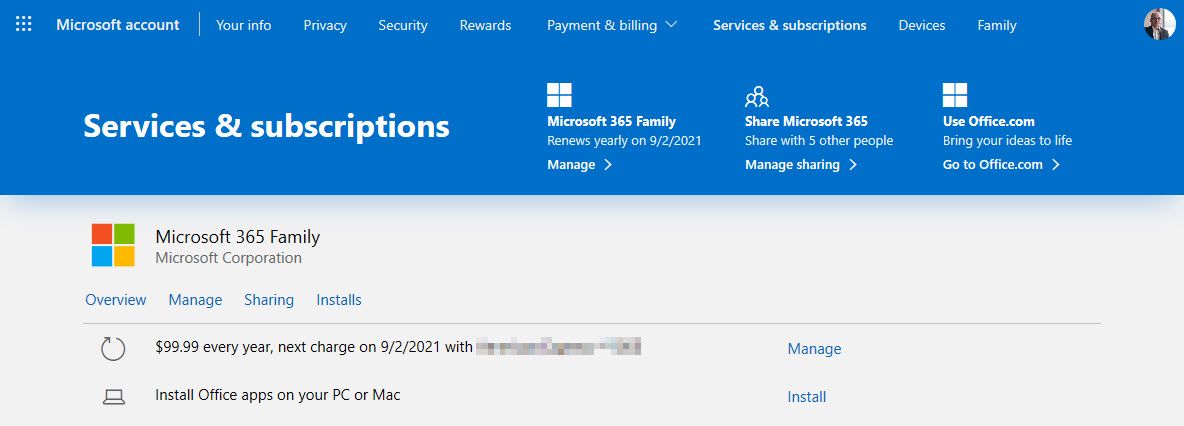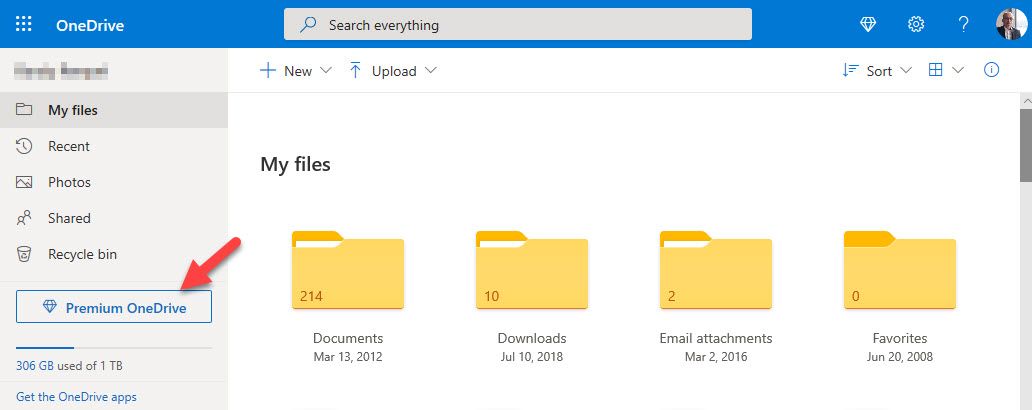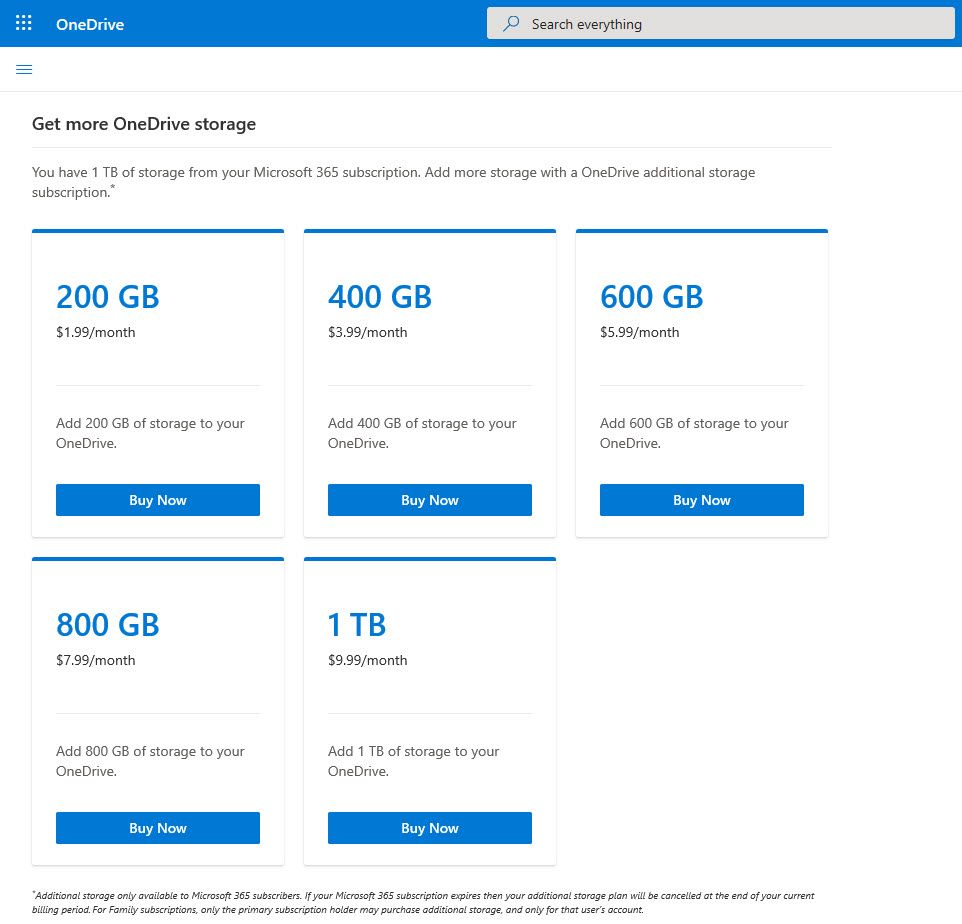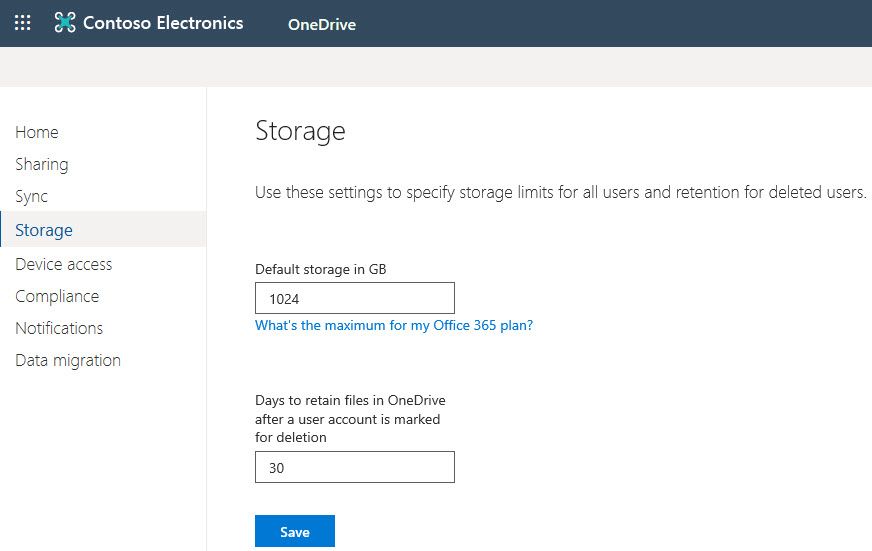
How information is stored and accessed plays an integral role in how we collaborate and work. In this blog, we’ll cover the growing appeal of OneDrive storage and its available storage plans, OneDrive storage capacity and file size limits, how you can go about adding storage capacity when needed, and key service limitations to be aware of.
The evolution of OneDrive storage
Microsoft OneDrive has evolved considerably since it was first released in 2007 as Windows Live SkyDrive. Initially, SkyDrive storage capacities were limited to 5GB and soon increased to 25GB. File size limits were initially set to 50MB and increased to 100MB in 2011. SkyDrive was renamed OneDrive in 2014. Recent changes to OneDrive have significantly increased both the maximum storage capacity and the file size limits.
How much space do you get on OneDrive?
Microsoft has provided several OneDrive plans to choose from for both home and business use. The plans offer considerable flexibility and storage size options.
Home storage plans
The Microsoft 365 Personal and Family plans includes Microsoft Office applications for each person as well. Microsoft 365 subscribers can also purchase additional storage. For example, another 1TB of storage can be added for $9.99 per month. In addition, Microsoft 365 subscribers have an unlimited personal vault, 30-day file restoration, increased sharing limits, password-protected sharing links, and expiring sharing links.
Home storage plans
The Microsoft 365 Personal and Family plans includes Microsoft Office applications for each person as well. Microsoft 365 subscribers can also purchase additional storage. For example, another 1TB of storage can be added for $9.99 per month. In addition, Microsoft 365 subscribers have an unlimited personal vault, 30-day file restoration, increased sharing limits, password-protected sharing links, and expiring sharing links.
| Home storage plans | Details | Price | Storage limit |
| OneDrive Basic | OneDrive Only. | Free | 5GB |
| OneDrive Standalone | OneDrive Only. | $1.99 / month | 100GB |
| Microsoft 365 Personal | Office apps. | $69.99 / year | 1TB 2TB max |
| Microsoft 365 Family | Up to 6 people.Office apps. | $99.99 / year | 1TB / person – 6TB total 2TB max / person |
Business storage plans
The OneDrive for Business (Plan 2) and Microsoft 365 Business plans include advanced data loss prevention, data retention, eDiscovery, sensitivity labels, and compliance offerings. The Microsoft 365 Business plans include Office integration, email and calendaring, and teamwork and communication features. Administrators can increase storage capacity to 5TB per user and then request additional storage up to 25TB per user by contacting Microsoft Support. SharePoint team sites can be provisioned for storage if a user needs more than 25TB.
| Business storage plans | Details | Price | Storage limit |
| OneDrive for Business (Plan 1) | File sharing and OneDrive storage. | $5 / month | 1 TB per user |
| OneDrive for Business (Plan 2) | Advanced security and compliance capabilities. | $10 / month | Unlimited individual cloud storage – five or more users. Starts at 1TB per user. |
| Microsoft 365 Business Basic | Web and mobile versions of Word, Excel and PowerPoint included. | $5 user / month | 1 TB per user 25TB max / person |
| Microsoft 365 Business Standard | Business-class email. Desktop apps. | $12.50 user / month | 1 TB per user 25TB max / person |
For current plans and pricing, view the Compare OneDrive storage pricing and plans on Microsoft.
What can you store on OneDrive?
As a user, you can store photos, documents, videos and practically all file types in OneDrive.
All Microsoft 365 Personal and Family plans and Business storage plans support file sizes up to 100GB. In January 2021, Microsoft announced that the supported file size was increased to 250GB. General availability for 250GB file size is expected by the end of the first quarter of 2021.
OneDrive supports up to 50,000 major versions and 511 minor versions.
OneDrive allows storage of almost all file names and file types. The exceptions are listed below in the limitations.
Limitations:
- Characters that aren’t allowed in file and folder names in OneDrive for home, OneDrive for work or school and SharePoint in Microsoft 365 are: ” * : < > ? / \ |
- Leading and trailing spaces in file or folder names also aren’t allowed.
- These names aren’t allowed for files or folders: .lock, CON, PRN, AUX, NUL, COM0 – COM9, LPT0 – LPT9, _vti_, desktop.ini, any filename starting with ~$.
- Temporary TMP files will not be synced to OneDrive.
- Outlook .PST files are supported; however, they are synced less frequently compared to other file types to reduce network traffic.
To learn more about file and sync limits, see SharePoint limits and Invalid file names and file types.
Technically, there are very few limitations with OneDrive storage. OneDrive users should also consider the Code of Conduct in the Microsoft Services Agreement. Many of these rules are practical and common sense. A few of the rules are listed below for reference.
i. Don’t do anything illegal.
ii. Don’t engage in any activity that exploits, harms, or threatens to harm children.
iii. Don’t send spam or engage in phishing.
v. Don’t engage in activity that is fraudulent, false or misleading
viii. Don’t infringe upon the rights of others
ix. Don’t engage in activity that violates the privacy of others.
x. Don’t help others break these rules.
How do I add storage to OneDrive?
OneDrive Home storage plan users can purchase additional storage online within their existing plan. A Microsoft 365 plan provides the best value for storage and allows an individual user to increase storage up to 2TB.

Microsoft provides premium OneDrive plans to increase storage for individual users. To increase to a Premium OneDrive storage plan, click on the Premium OneDrive button in OneDrive Online.

The Microsoft 365 Family plan details will then be displayed. You can then scroll down to view plan options and add more storage.

Business storage plans are managed by the organization’s administrators. As stated earlier, administrators can increase OneDrive storage capacity to 5TB per user and then request additional storage up to 25TB per user by contacting Microsoft support.

Summary
The seamless integration of OneDrive into Microsoft 365 has helped OneDrive become a premier enterprise-grade platform for working with, storing, and sharing content. When it comes to OneDrive storage specifics, Microsoft provides several OneDrive plans to choose from for both home and business use. Home storage plans provide up to 2TB max storage per person. Business storage plans on the other hand provide up to 25TB max storage per person. Both plans provide for configuration options to increase storage as needed. There are very few limitations for what can be stored on the OneDrive service. The Code of Conduct section in the Microsoft Service Agreement provides a set of rules and regulations you can reference for how the OneDrive service should be used.
For more insight, check out our articles on How to use OneDrive, The ins and outs of OneDrive file sharing and The top benefits of using OneDrive.



